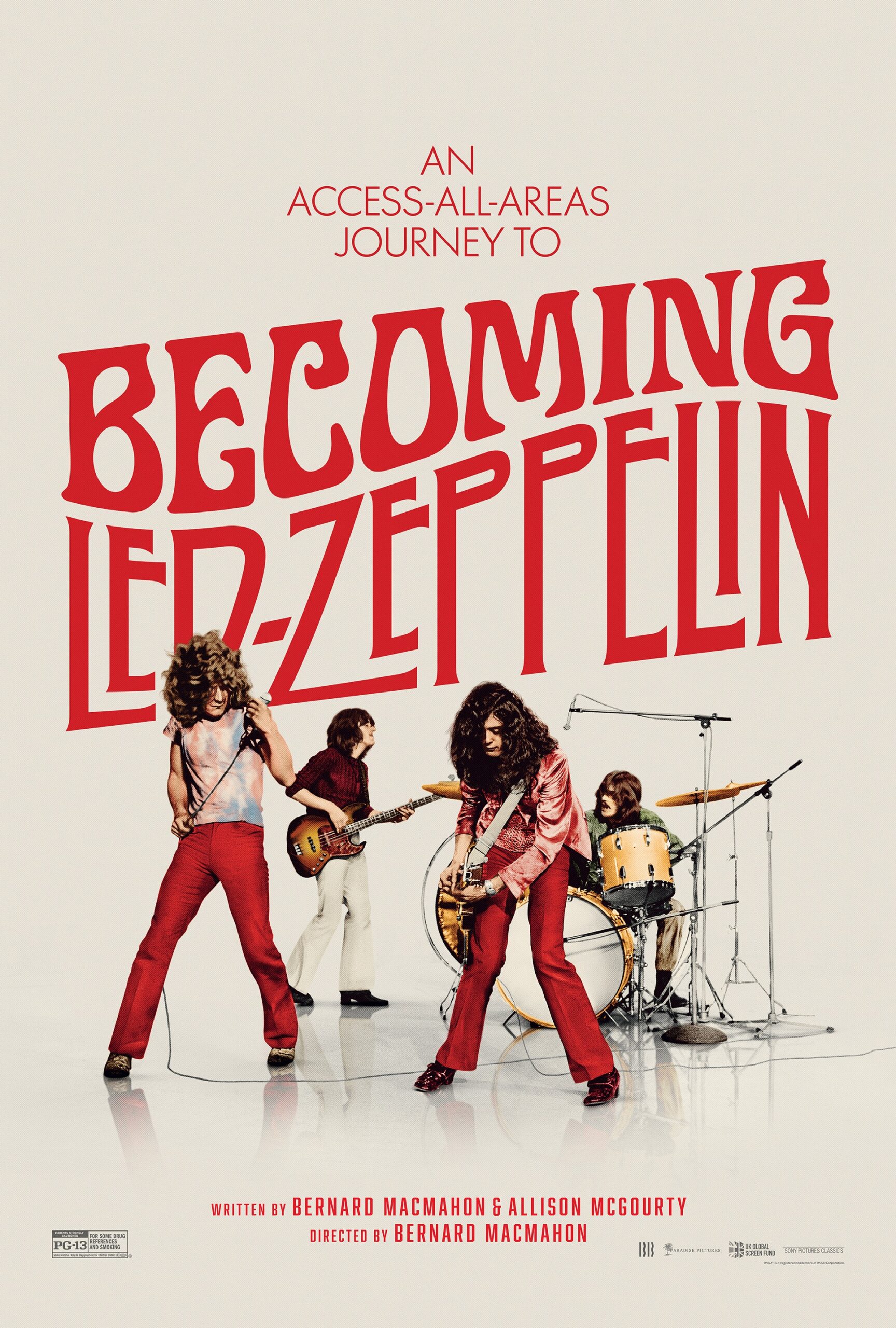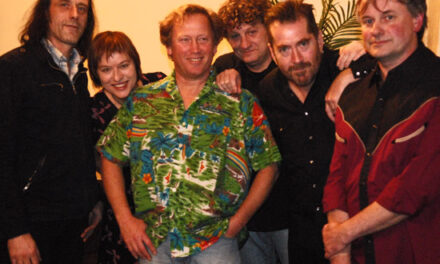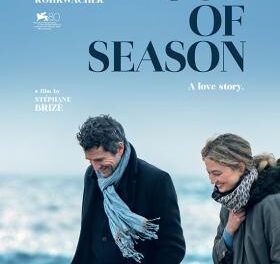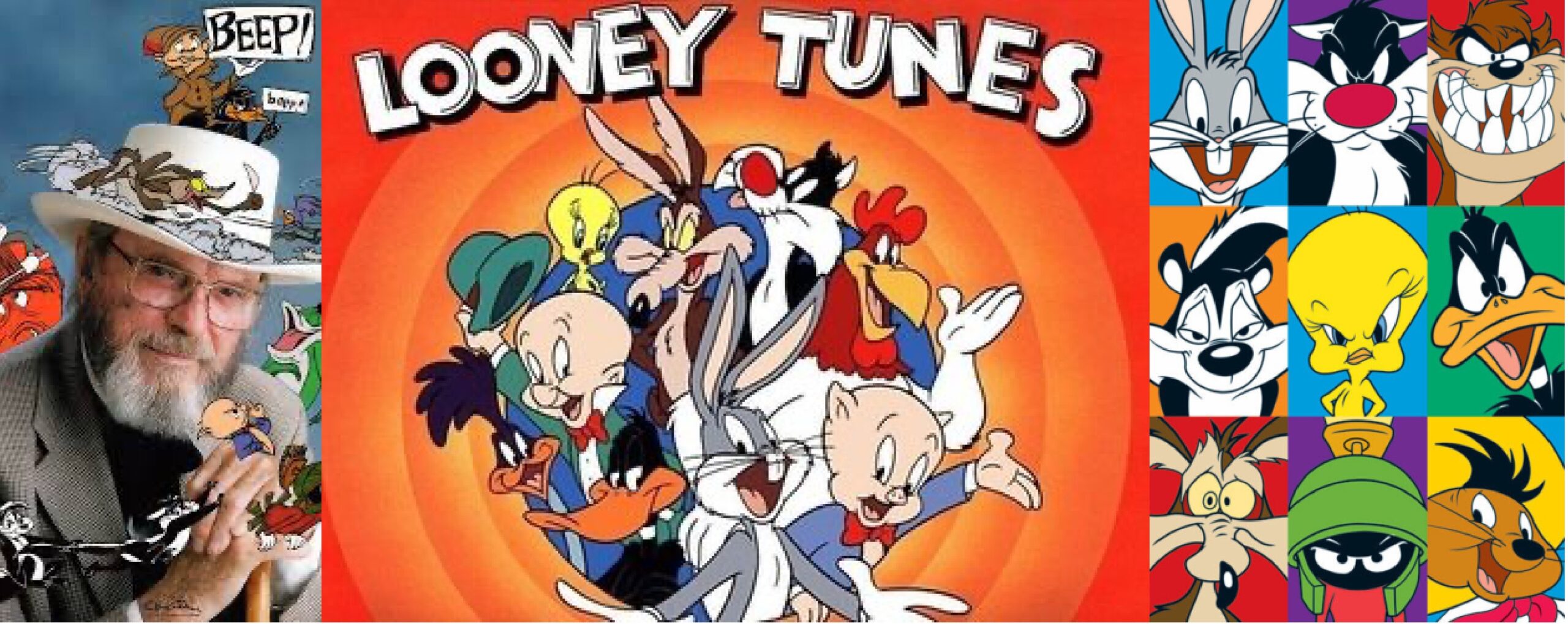Between the ages of thirteen and sixteen, I was totally obsessed with Led Zeppelin.
I had their poster on my bedroom wall (next to Malcolm Blight) and had the inside sleeve of their fourth album containing the lyrics to Stairway to Heaven, hanging by fishing line from the roof.
It stayed there until the accumulation of dead mozzie and midgie carcasses was too much for my mum who demanded it’s removal.
I would beg, borrow and steal in order to buy their albums and saved enough for a Led Zep 2 T shirt.
After leaving home at seventeen to head east, my tastes changed so fifty years on I was keen to see the preview of Becoming Led Zeppelin and perhaps see why this band were so influential to angst-ridden teenagers like me.
The only real vison of Led Zep at the time (they disbanded in 1980) was in their concert film The Song Remains The Same.
It only added to their mystique. They were a band that only released albums not singles, so you were never going to see them on Countdown and they enjoyed flying under the radar.
As a fan I was like part of a secret society, walking past the guys at school with KISS T-shirts and showing them scant regard, looking for that fellow Led Zep fan and giving them a nod and a wink.
This documentary interviews the three living members Robert Plant, Jimmy Page and John Paul Jones and has some never before heard interview highlights with John Bonham who passed away in 1980.
In terms of a music documentary it’s fairly formulaic however it was totally engaging as these elderly legends tell it as it was intertwined with brilliant never before seen concert footage.
They were certainly great friends and not affected by the usual sex and drugs issues, although Bonham would succumb to alcohol addiction at the end of their tenure.
The timeline of the band’s career in this film is only up to the Led Zeppelin 2 album in 1969 which left the cinema’s full house of ‘middle agers’ begging for more! Probably my two favourite albums of theirs, Led Zeppelin 3 and Houses of the Holy weren’t covered so fingers crossed there is a part two to this documentary.
As a teenager and master ‘air guitarist’ I was worshipped Jimmy Page. I must have read the Led Zep biography in the NME Encyclopaedia of Rock twenty times and it only heightened the devotion to the great ‘axeman’.
What I gleaned most from the doco after not listening to Led Zep for close to fifty years was just how tight the rhythm section of Jones and Bonham was.
Like the late Keith Moon of The Who, Bonham was an easy target for parodying but both these guys were on a different level as drummers.
The film also reminds us of Page’s incessant use of a violin bow for guitar solos which was hilariously taken off by Christopher Guest in This is Spinal Tap. Page’s greatness can’t be questioned but I found myself tapping my feet to the two at the back.
There were some great shots of the infamous manager Peter Grant who was a giant of a man and notoriously protective of the band. Again, Grant was parodied by Tony Hendra as Ian Faith in Spinal Tap as the band’s manager who carried around a cricket bat. Grant did exactly that.
All the band members are humble and eternally grateful. They were incredibly hard working. An example being that they recorded the entire Led Zep 2 album whilst completing a gruelling tour of the US, all while they were in their early twenties.
If you’re an old fan or a curious youngster, this is a terrific insight into a band that would become a worldwide phenomenon. 8/10
I’ve only ever seen one other Iranian film and it was a beauty called The Salesman but I’m determined to watch more after seeing The Seed of the Sacred Fig.
The film tells the story of what appears to be a close knit family that slowly disintegrates into a state of catastrophe.
The father is a hard working equivalent of a prosecuting attorney. His wife is a homemaker and he has two spirited teenage daughters.
Iran, without delving too deeply because I’m not an expert, is a ruggedly beautiful country but is ruled by an authoritarian regime. There have been many civil protests against the regime over the decades mainly over human rights abuses, especially against women, but fear is still the common rule over the general population.
The father works for the regime and is in a situation where he needs to do as he is told or get out be a failure. He is expected to imprison and/or send prisoners for execution, many of whom are political prisoners.
His daughters are women of the world thanks to the internet and are anti-regime. His wife supports him but there is a breaking point.
He had been issued a pistol by the regime but it goes missing from it’s hiding place in the family home. He becomes hysterical and given there are only three others in the house, one or all of them must have stolen it.
If he doesn’t retrieve the gun, the regime will destroy him so the next hour of the film is about his self-destruction and how he drags his family down with him.
My friend Pete reckons that at two and a half hours long it’s about half an hour too long. I agree.
The acting and shooting of the film is excellent and amazingly the film makers have almost sacrificed their lives to make it.
Director Mohammad Rasoulof was a political prisoner himself and was inspired to write the film after 22YO Mahsa Amini was killed by the regime for not wearing her hijab.
He had to escape Iran and incredibly had to direct the film from his sofa in exile.
The film certainly examines how people particularly in Iran, submit themselves to either a god, a government or both. It also focuses on a new generation of women who are quickly changing their perspective to the oppression. 8/10




